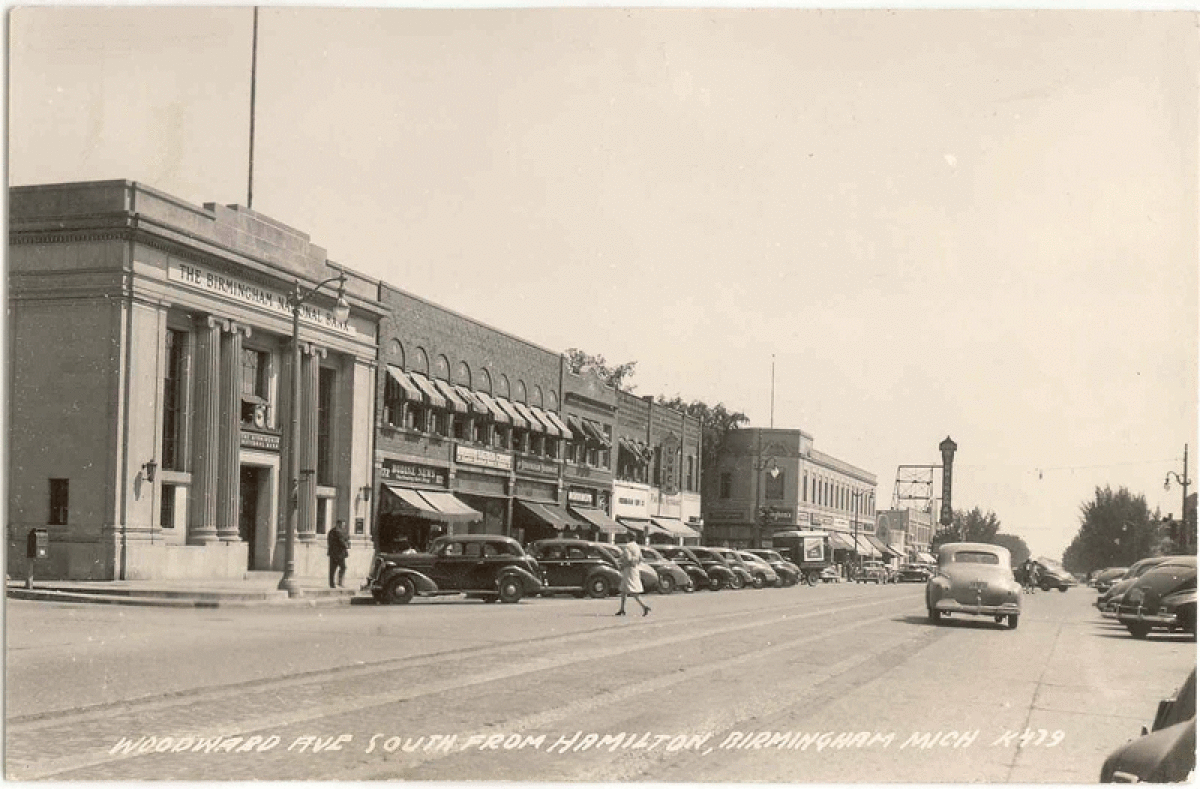BIRMINGHAM — The Birmingham City Commission unanimously adopted in its entirety completed Birmingham Historic District design guidelines June 26.
In 2021, the city received a grant from the Certified Local Government program, through the State Historic Preservation Office, to create a set of comprehensive historic preservation design guidelines.
Birmingham Planning Director Nick Dupuis made a presentation to the City Commission at the meeting.
“The end goal was to create a tool for our Historic District Commission and our Historic District Study Committee in some capacity to use as they review any applications relating to historic resources or resources within a historic district,” Dupuis said.
The document includes historical and educational information to answer questions such as “Why preserve?” and “What is historic?”
Resources for commercial and residential districts are also included in the document.
The city has been working with Kraemer Design Group since June 2022 to create the Birmingham Historic District Design Guidelines. Prior to the final approval of the guidelines, four deliverables were reviewed by the Historic District Commission and the State Historic Preservation Office.
“As a part of the grant, they (the State Historic Preservation Office) had to be quite involved, and they were, and they gave us some really good feedback the whole time,” Dupuis said.
There were also specific guidelines Birmingham had to meet while completing this process. This grant program is a reimbursement grant, so the city will receive its money back once its application for reimbursement is approved. The overall project was $20,000. These project costs were budgeted for the 2021-2022 fiscal year, and all invoices were paid.
As far as public communications involved in this project, the community had the opportunity to provide feedback at a booth at the 2022 Day on the Town, in addition to a community survey.
Dupuis said they plan to also be at this year’s Day on the Town July 29 to once again communicate with the public and answer any questions they might have about the guidelines.
A shortened version of the guidelines will also be sent out to all owners of historic property to further inform the community.
Dupuis explained the role of the document to clarify how it should and will be used.
“This is not a regulatory document. This is more of an educational tool,” Dupuis said.
While this may mostly be used by the Historic District Commission, it is also available for property owners, architects, developers or anyone else in the community who is interested in the city’s historical preservation.
“There will never be a decision made where someone says, ‘the design guidelines say you can’t do this, so I deny your project,’” Dupuis said. “That would not be appropriate. We have other standards in our city code that we base reviews on.”
Dupuis said many of the guidelines are consistent with other guidelines locally, nationally and through the National Parks Service Secretary of the Interior Technical Preservation Standards.
While there is already a national set of guidelines set in place, Dupuis said this design guideline set is customized to Birmingham and addresses the city’s particular quirks and issues.
For example, Dupuis said Birmingham gets a lot of questions about lighting historic buildings, which is not often found in other sets of guidelines.
When Dupuis concluded his presentation, Commissioner Andrew Haig commented on what he liked about the proposed guidelines.
“I like how detailed it actually is,” Haig said. “I know you said it’s long, but I can see the reasons for it and I do have to say the pictorial examples do really help a lot with explaining things.”
Commissioner Brad Host also commented on the good work of everyone involved.
Mayor Pro-Tem Elaine McLain praised the document for its content.
Commissioner Clinton Baller disclosed that he had a conversation earlier in the day with City Manager Jana Ecker and Dupuis where he was assured that everything in the document was synthesized pre-existing information, rather than new information.
Baller also questioned a few instances where the content could be reworded for clarity.
The commission approved the original motion presented “subject to the minor modifications and linguistic updates as discussed.”
 Publication select ▼
Publication select ▼






















